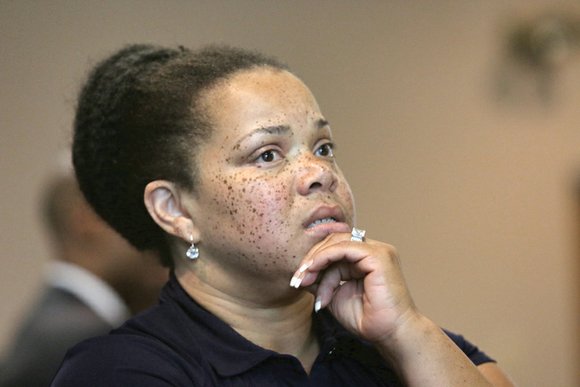Student advocate wins case in Chesterfield
Jeremy M. Lazarus | 3/22/2016, 6:06 a.m.
Kandise Lucas, an advocate for disabled students and their parents, did not trespass at a Chesterfield County high school last year despite being banned from the property, a Chesterfield Circuit Court judge ruled Wednesday.
Judge Timothy J. Hauler threw out the misdemeanor trespass charge the school system had brought after finding Ms. Lucas did not have the requisite intent.
Quoting from a 1988 Virginia Court of Appeals decision, the judge ruled that Ms. Lucas had “a good faith basis … and a sincere belief she had a right” to enter Meadowbridge High School on April 29, 2015, to attend a meeting with a parent, student and school officials concerning the student’s individual education plan (IEP).
Judge Hauler’s ruling came after three hours of testimony in the case that tested whether Ms. Lucas or other student advocates could be arrested for entering school property.
“Victory,” said Joseph D. “Joe” Morrissey, who represented Ms. Lucas pro bono at the request of the state NAACP.
“I feel like all my families and the children I represent won,” Ms. Lucas said. “Now they don’t have to worry that their advocate can be banned. It’s an awesome feeling.”
Judge Hauler, who scolded the school system for involving the courts rather than “handling this in another way,” kept his ruling narrow. He did not address a motion from Mr. Morrissey, who urged the judge to dismiss the case based on federal laws that protect advocates for disabled students from arrest or retaliation by a school system.
Ms. Lucas took the case to Circuit Court after being convicted in Chesterfield General District Court. She also filed a complaint with the U.S. Department of Education’s Office of Civil Rights, which is investigating whether the county violated federal law and the rights of the parent and student to be represented by the advocate of their choice.
Witnesses in the case testified that the Ms. Lucas had attended two previous IEP meetings at the high school on behalf of the student and had been invited by the school and the parent for the April 29 meeting.
However, before the meeting, the county school administration sent Ms. Lucas a letter reminding her that she had been banned from school property in 2011 and notifying her the ban would be enforced. The letter was issued after Ms. Lucas sharply criticized the school system for its treatment of the student in published statements and interviews and filed a complaint with the Office of Civil Rights.
Prosecutors presented evidence that Ms. Lucas flouted the ban and was arrested after entering Meadowbridge High. They urged her conviction, which carries a $2,500 fine and a year in jail.
Mr. Morrissey argued that the school system brought the charge in retaliation for her outspoken criticism.




